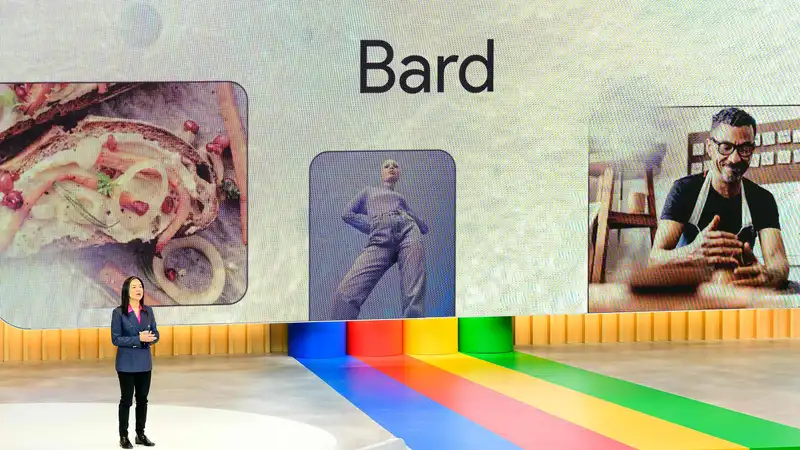Google I/O 2024 seemed to lose a major headliner last week when Google announced the Pixel 8a a week before its annual developer show. The recent Pixel A series phones debuted at past I/O get-togethers, and it was widely assumed that the Pixel 8a would follow suit at this year's event.
Of course, there is another way to interpret the Pixel 8a's seemingly early announcement ahead of Google I/O 2024, which will be held this Tuesday, May 14, with a keynote at 1 pm ET/10 am ET. Google may have pre-announced the new model because it wants to turn the focus of Google I/O to something else. And that something else is likely to be the company's AI efforts.
Unless you've spent the last year avoiding tech news, you know that artificial intelligence is coming into the light of day. It seems like not a day goes by without the announcement of an algorithm that can generate an image from the slightest prompt or rewrite a sentence in a different tone. Naturally, tech giants have also started their own AI efforts, and Google is at the top of the list.
Google's most high-profile project is Gemini, an AI model that learns images, video, voice, code, and text, announced last December; Gemini is also the name of a chatbot developed by Google (previously known as Bard). . On Android devices, it is replacing Google Assistants.
In fact, the next generation version of the Assistant (apparently called "Pixie") may be unveiled at Google I/O, and there is talk that a more powerful Assistant will make its on-device debut with the Pixel 9 this fall. So Google I/O may not be entirely devoid of hardware, even after the Pixel 8a is announced. Google has used the I/O stage before to preview phones that won't arrive until the fall, and that history could repeat itself on Tuesday.
However, this week's Google I/O keynote is likely to feature other examples of AI, especially how it can help the company's still-important search business; Google has developed with Samsung to make cell phone search easier with Circle to Search, and apply such functionality to other devices and platforms.
So we go into Google I/O with some knowledge of the "what" Google plans to show off - AI features, and lots of them - but not much about the "how." Therefore, we expect demos of current Google products and services like Maps, Gmail, and Chrome to include new AI-powered features.
If you want to escape the AI onslaught, there is Android 15, which will likely get some sort of preview at the Google I/O keynote; the Android 15 beta is already available, so Google already knows about the software update They may not spend a lot of time rehashing things, but there may be demos of key features and maybe even some newly announced features.
While it may be unlikely that hardware will appear at Google I/O, we mentioned a sneak peak of the Pixel 9 as a possibility. Google recently announced that it is merging its Android and Pixel teams in order to accelerate the integration of AI into its devices. (As a result, it would not be shocking if Google spent some time talking about the combined teams and what that means for future devices.
Still, the best parts of Google I/O keynotes are the unexpected demos and announcements. For example, the 2018 I/O keynote featured a demonstration of Google's Duplex technology, which allows Google Assistant to call restaurants and make reservations on behalf of users.
It is these unannounced, unexpected, and thoroughly impressive demos that make I/O a memorable event every year. And what this year's memorable moments will be will be revealed this Tuesday.
I want to see Google I/O for myself. Follow our guide to watching the live stream of Google I/O 2024.
.









Comments